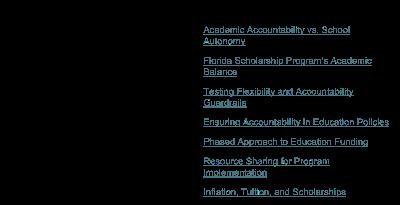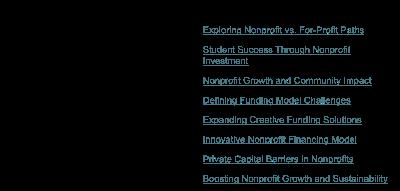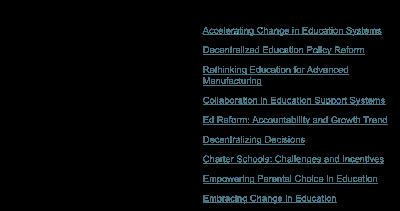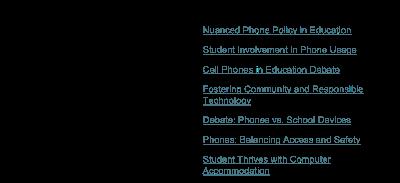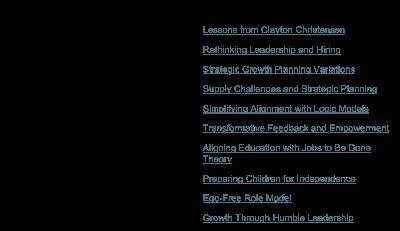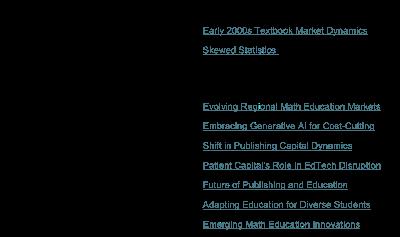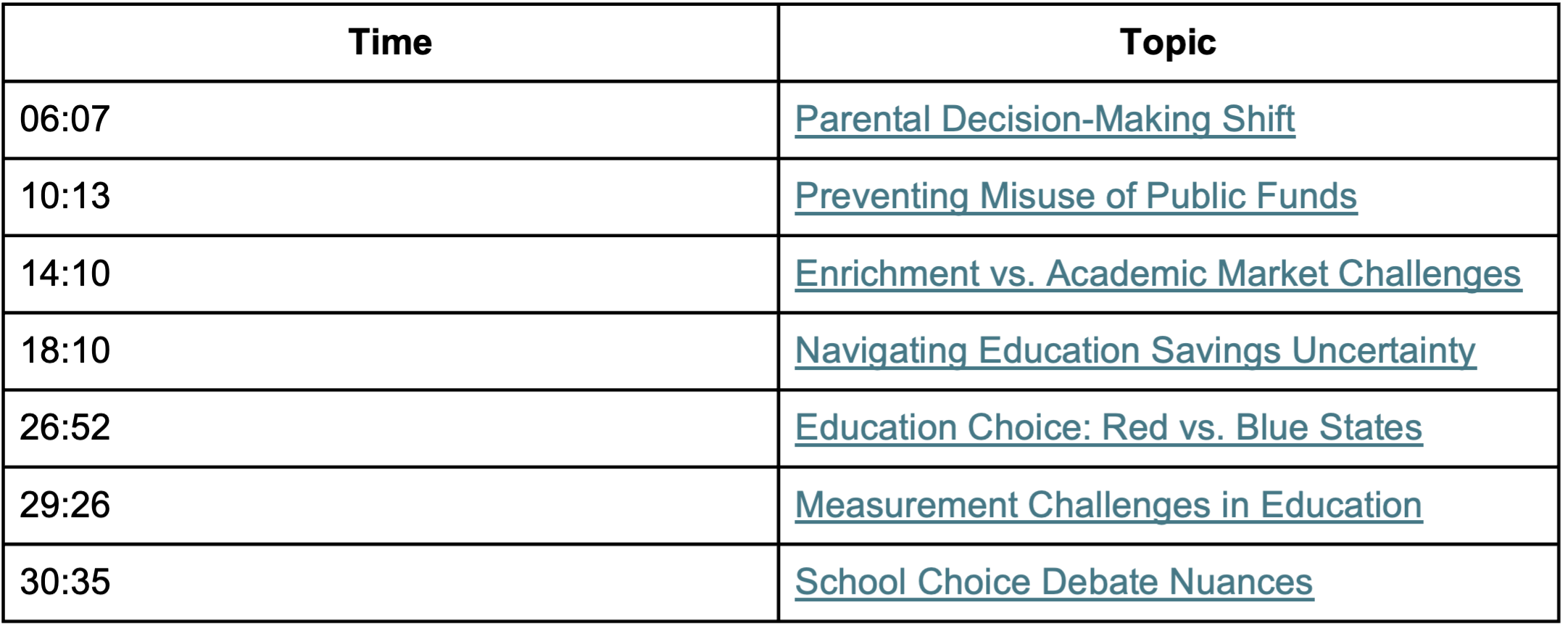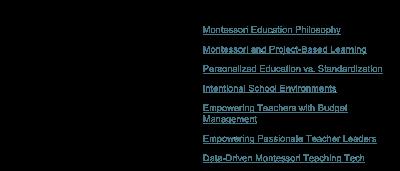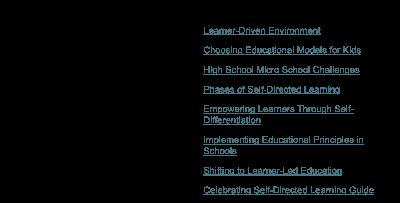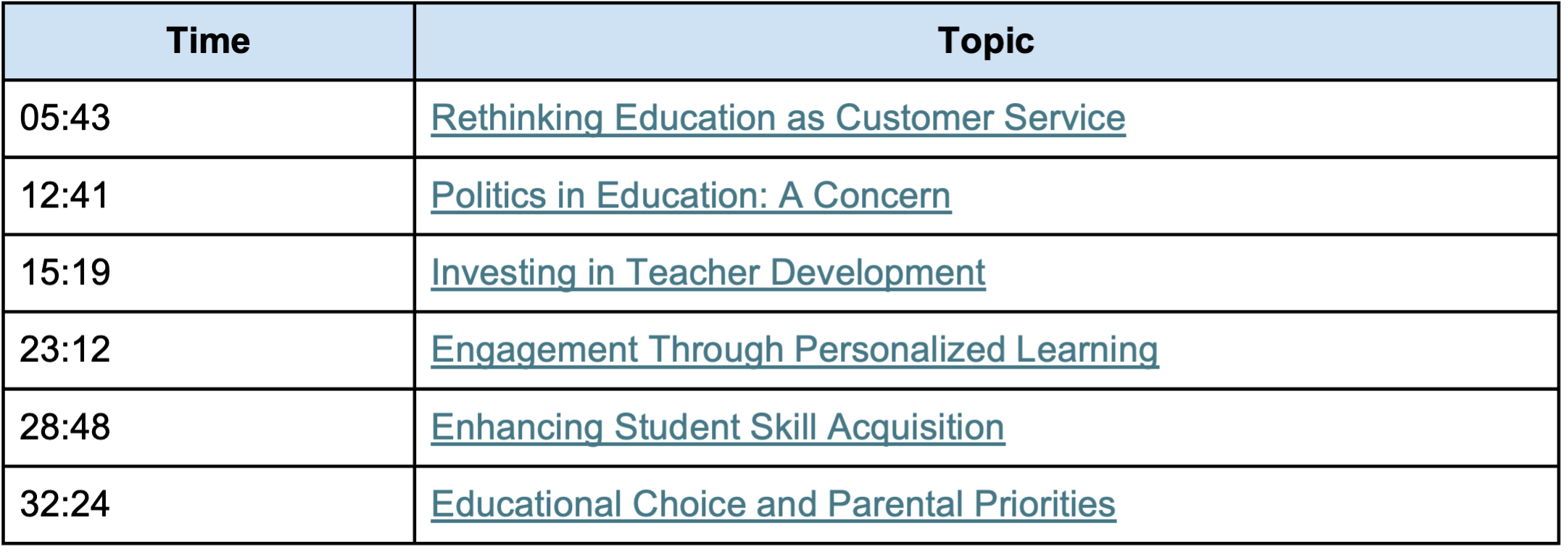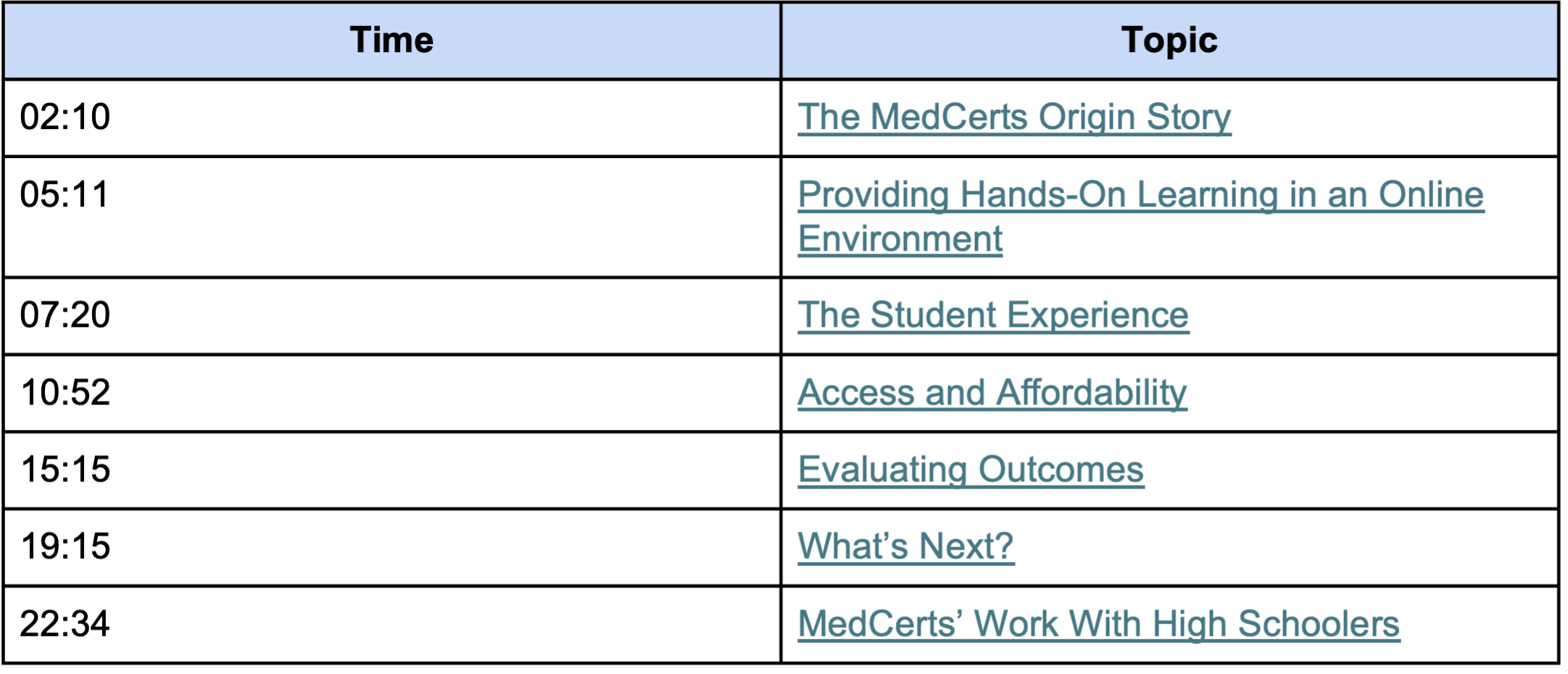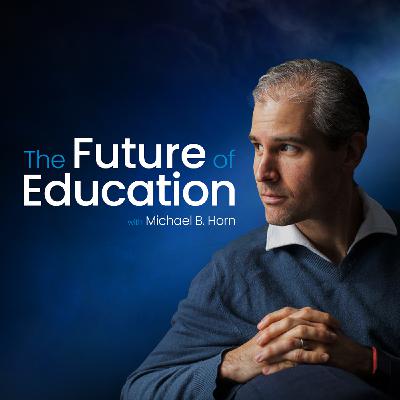In the Nitty Gritty of Education Choice
Description
Patricia Levesque, CEO of ExcelinEd, and Ben DeGrow, Senior Policy Director of Education Choice at ExcelinEd, join me to delve into the evolving landscape of educational choice. Our discussion centered on the uptick in states implementing educational savings accounts (ESAs) and the various questions surrounding their implementation, specifically academic accountability, financial safeguards, and effective program management. Levesque and DeGrow discussed the need for a balance between broad policy frameworks and practical regulations. I keep learning a lot from these conversations around this fast-growing space of choice and personalization—and hope you all do as well.
Michael Horn
You are joining the show where we are dedicated to creating a world in which all individuals can build their passions, fulfill their potential, and live lives of purpose. And to help us think through this pressing set of issues today, I'm incredibly excited. We have people I've worked with for many years, looked up to for many years, who are going to lend a lot of insight on the topic of educational choice in particular, but they could talk about so much more. So first, Patricia Levesque, the CEO of ExcelinEd..
Patricia, great to see you. Thanks for joining.
Patricia Levesque
Thanks for having us.
Michael Horn
And then Ben DeGrow, the senior policy director of Education Choice at ExcelinEd., Ben, good to see you as well.
Ben DeGrow
Thanks. Great to be with you.
Michael Horn
I've been looking forward to this conversation since y'all reached out on the topic of educational choice and the contours of that conversation and the really interesting debates that are going on right now around implementation as so many states dive into this world in a much more meaningful way over the last several years. And before we get into those conversations, maybe let's just like zoom out, high level. Patricia, let's start with you. And then, Ben, jump in. Look, a lot of states are moving, you know, not just into school choice, educational choice. We see education savings accounts getting a lot of attention, a lot of movements toward universal choice at that.
There have been movements, I think, in Tennessee and Texas in recent weeks. There were setbacks at the polls in November. What's your current assessment if you just look high level of where we are in the world of education choice and this movement, broadly speaking, and perhaps maybe a little bit of forecasting, where you think we will be by the end of the year?
Patricia Levesque
Sure. I'll start by saying I think we are in a great position in educational choice and opportunity for families. The best that we've been in my 28 years working on this policy. Right. And Michael, me just start by saying the way you introduce this podcast, the mission of this podcast is like the mission of private school choice or educational choice. It's giving families the ability to find the best education fit for their child. So their child, because we believe kids are individuals, they're very unique, and not one system or one school is the right, best fit for every child. So empowering families with that opportunity is what we.
What we like to do with policy. And we're in the best position on that, in the country that we've been in as long as I can remember.
Michael Horn
Ben, what would you add in terms of where we are at this moment and maybe give us a sense of how many states have moved into different, you know, really embracing real choice at this point?
Ben DeGrow
Yeah, I think we're at a real major inflection point. I feel like every year we've been saying this is the year of school choice for several years and every year it just seems to be more true Than the year before.
And I mean at ExcelinEd we cover a whole gamut of choice in the public and private space. But we're just going to hone in on private education choice. We're not talking more than 30 states that are offering at least some students either a voucher scholarship or tax credit scholarship from USA and we're coming up on just over a dozen states that are offering all students, regardless of income, regardless of background, access to funds. Personally, we dive into the nuances of that. It can be, you know, how much funding is available, for how many students and so forth. But with states like Tennessee passing, in Texas, we're on the verge of having the majority of students, the United States eligible for private school choice, which is something we hardly could have imagined five years ago.
Michael Horn
All right, so with that as backdrop, lot of momentum in this direction each year sort of surpassing the previous one as you said,Ben, let's flip to implementation from the outside. I will say there are a surprising number of debates around how to put these various policies into place in the states. Let's maybe start with accountability. Patricia, you wrote what I think remains the most nuanced and thoughtful take about accountability. I use it all the time on the stump with this continuum between sort of district run public schools to public charters to full on educational choice options and how we think about accountability and transparency mechanisms in each. Just take us through your logic on that and how you think about the accountability conversation right now.
Academic Accountability vs. School Autonomy
Patricia Levesque
Sure. And let me put a finer point and say we're really talking about the academic accountability, right? Not fiscal or health, safety, general welfare, things like that. And so we get asked often, how can Excelined have a position where students in the public school system should have to take a state test and there should be accountability or grading of public schools. Yet in private school choice or education choice, we advocate a more flexible norm referenced assessment model. And the answer to that is that there is a continuum of accountability versus autonomy. And so if you think about the ends of the spectrum, you have at one end a home education parent using their own funds to teach their own child. Right. And we would say there should be a very, very light touch of the state in that interaction between that parent and that child.
From an academic accountability standpoint, the other end of the continuum you have the traditional public school system, which is the default system. It's the compulsory system. It's the system that is federal, state and local taxpayer funded. It is a system that has taxing authority and, and sovereign immunity protections. Right. It is the big muscular system that the state needs to ensure learning is going on. Right. That kids are learning how to read and do math because the state or another government entity is compelling you to place your child in that system and telling you which school to go to.
Florida Scholarship Program's Academic Balance
Patricia Levesque
Right. And so there's a vested interest in the state ensuring there's some academic accountability in the system. If you move along the spectrum to publicly funded private school choice, and I'd put that right about in the middle of the system, what is the right balance between academic accountability, transparency and autonomy of the school? And so I would point your listeners to the Florida Tax Credit Scholarship Program. It is the program that has been in place the longest of all the statewide school, private school choice programs has served more than a million students and for 23 years only served low income students. So you have the largest, longest running program targeted for at risk kids that has had 13 years of solid academic outcomes. So by looking at norm referenced assessments, we can see that the students in that program are learning just as well or better than in many years their low income public school peers. We saw the Urban Institute do one of the longest, largest studies of 85,000 matched kids and saw incredible outcomes.
Post high school college going rates, college completion rates. So if the largest, longest running program has good outcomes, what does that program doing? How do we know if that program has the right balance? And I would say you look at parental participation, private school participation and outcomes which we just talked about. And if you look at the Tax Credit Scholarship program, it was always oversubscribed. There were always more parents every year that wanted to get into the program. And there was a very good balance of private school participation. So 80 plus percent of private schools in the state of Florida chose to participate in the program. That's very different than in very heavily regulated programs like the Louisiana Scholarship program where barely 30% of the private schools chose to participate. Right.
So you have strong parental participation, strong private school participation and good outcomes. Those to me give you three green check marks that that what that program is doing has a good balance. And that program is norm referenced assessment on the students you're participating with, the results reported back to the parent so they can see how their own child is doing and data reported back so the state can see how is the program doing as a whole. So we know that the taxpayer funds are being used well, and that's a really good balance.
Michael Horn
Ben, if you want to add anything there, I guess the one question I have is the reason norm reference instead of, say, criterion reference or something else? Because we really want to understand the counterfactual. Is that

